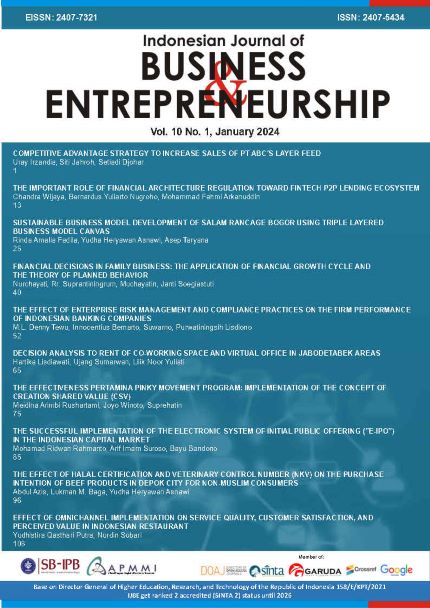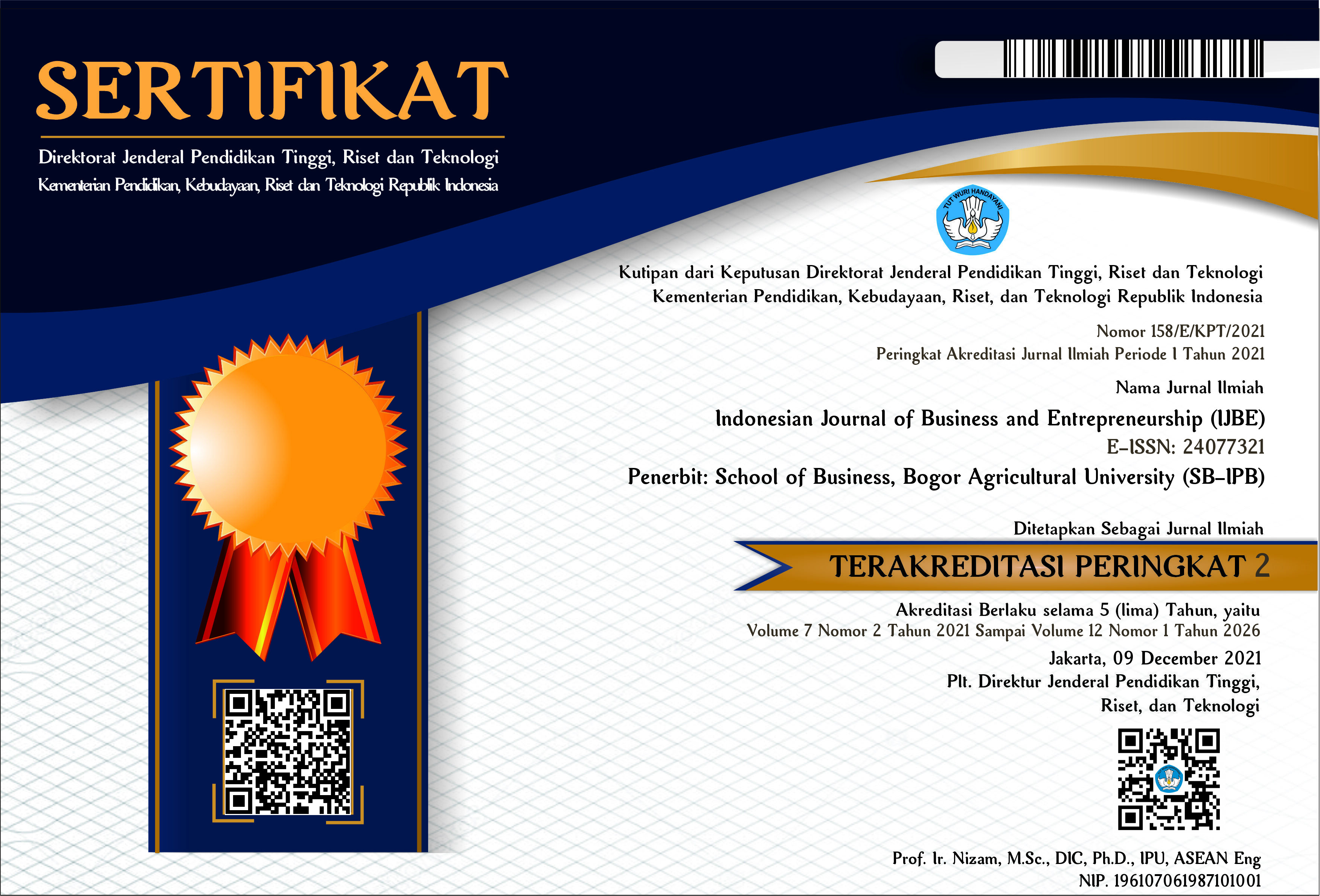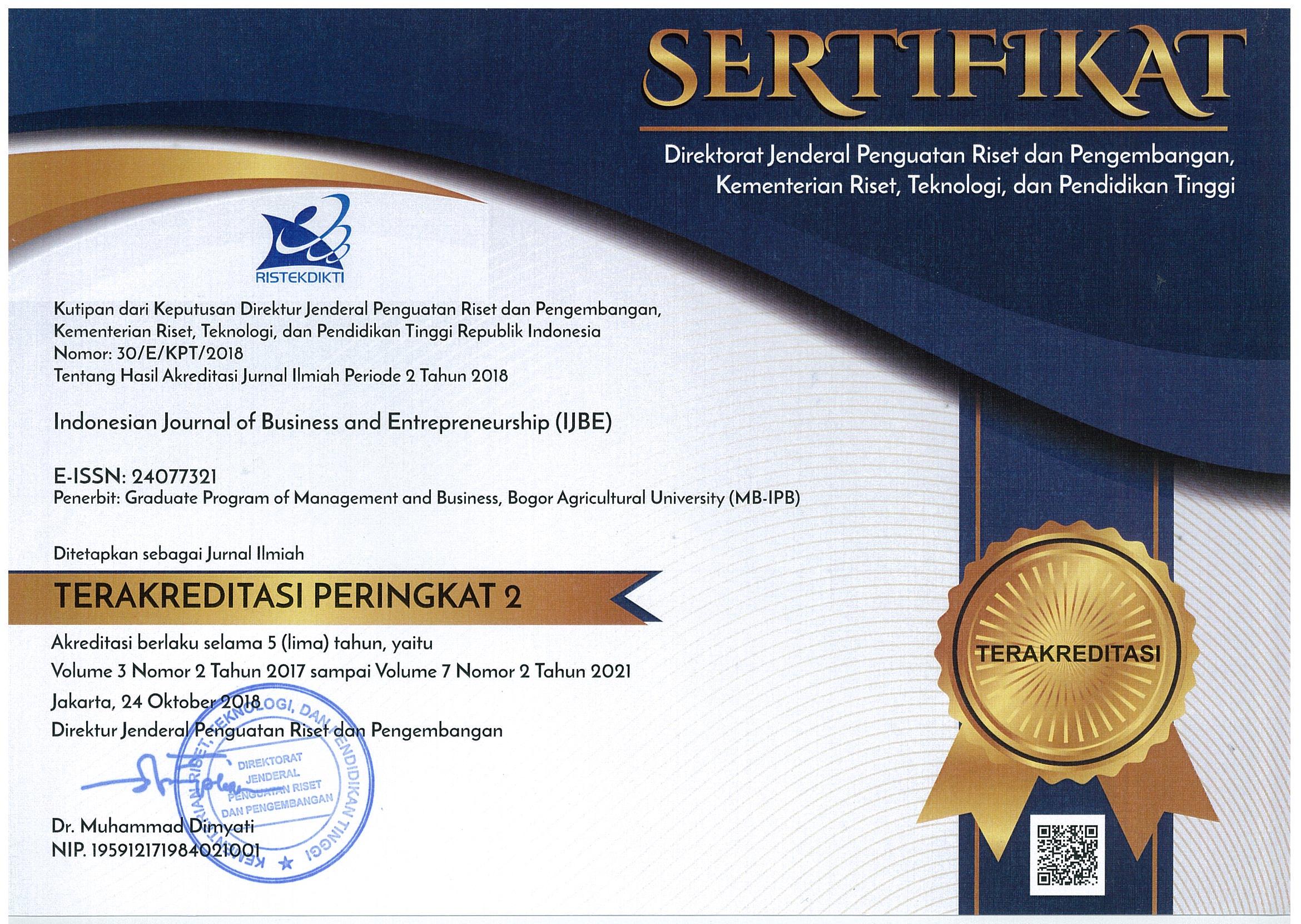The Creation of Community-Based Enterprise in Indonesian Return Migrant Workers: The Role of Internal and External Factors
Abstract
Entrepreneurship is one of the strategies in economic reintegration programs for Indonesian Return Migrant Workers when their employment contracts end and return to their homes. This study aimed to find out how successful the creation process of community-based enterprise is in the Indonesian return migrant workers community and to analyze the role of internal and external factors that influence its success. This study uses a qualitative method and took a case study on the Sahabat Bersama Cooperative as a community-based enterprise created by the Migrant Workers Family Community or Komunitas Keluarga Buruh Migran in Karawang Regency. Data was collected by using observation, semi-structured interviews, literature study, and documentation. This study uses the qualitative data analysis technique that consists of data condensation, data display, and conclusion drawing/verification. Results show that in the dynamics of the community-based enterprise creation process, internal factors, namely social capital and leadership played an important role in encouraging community participation in community-based entrepreneurial activities. In addition, external factors, namely institutional support systems from the public and private sectors played an important role in the cooperative's business development. The results of this study have implications for the importance of collaboration among several stakeholders involved in the economic empowerment programs for Indonesian Return Migrant Workers. Collaboration is needed between several related government agencies and the importance of the private sector's involvement in the success of community entrepreneurship activities to survive in the long term.
Keywords: community-based enterprise, return migrant workers, social capital, leadership, institutional support system








